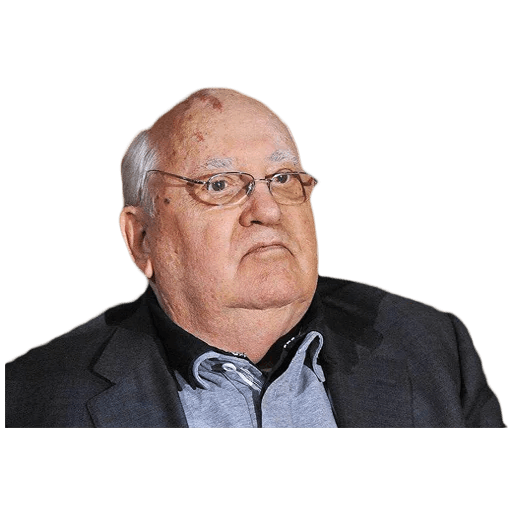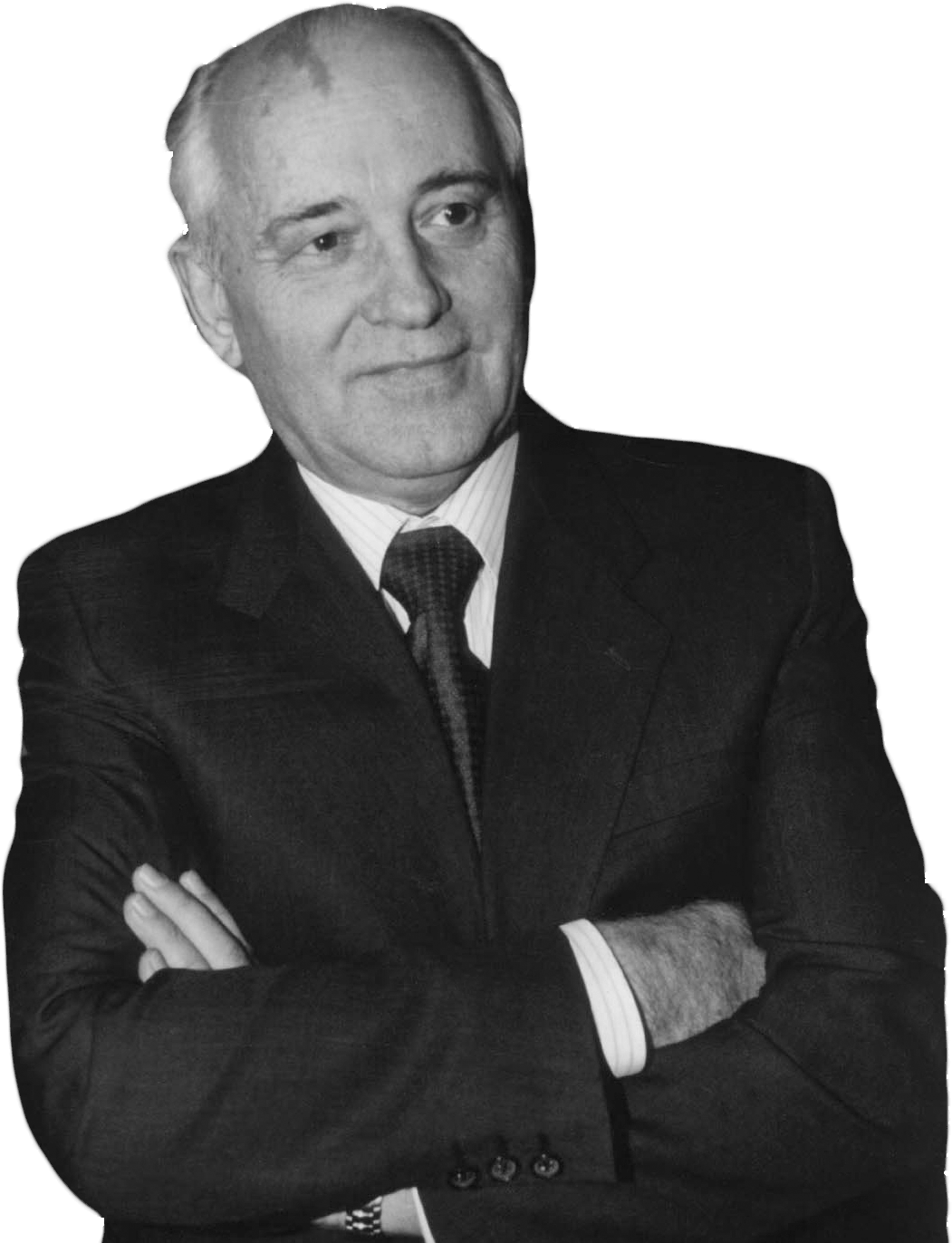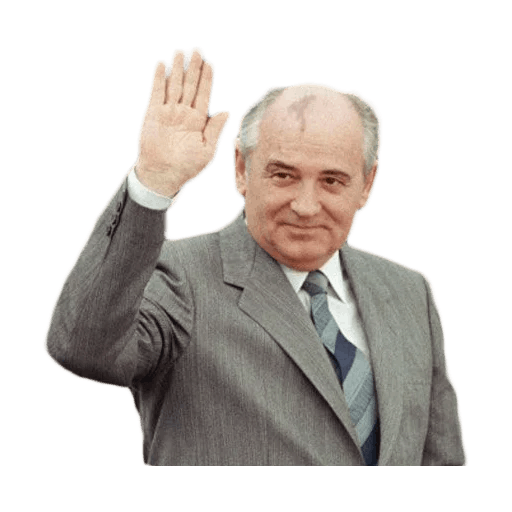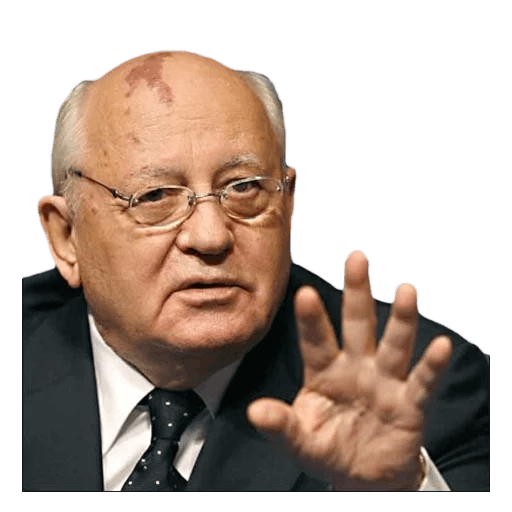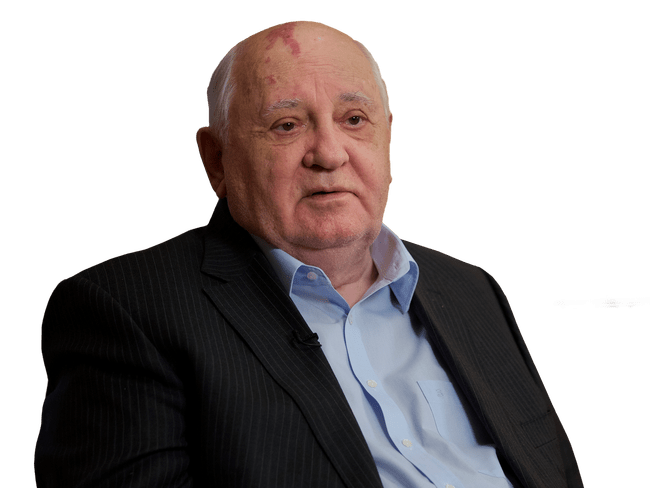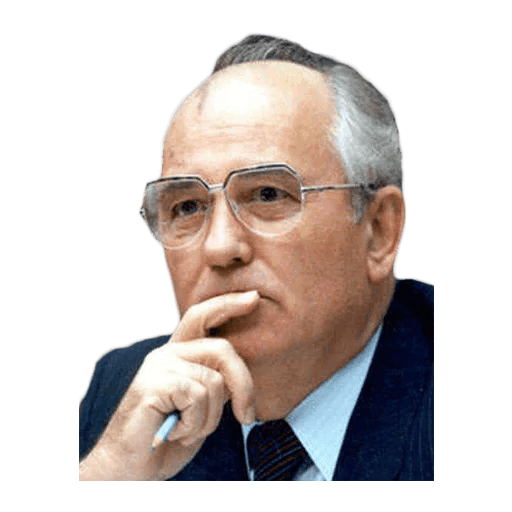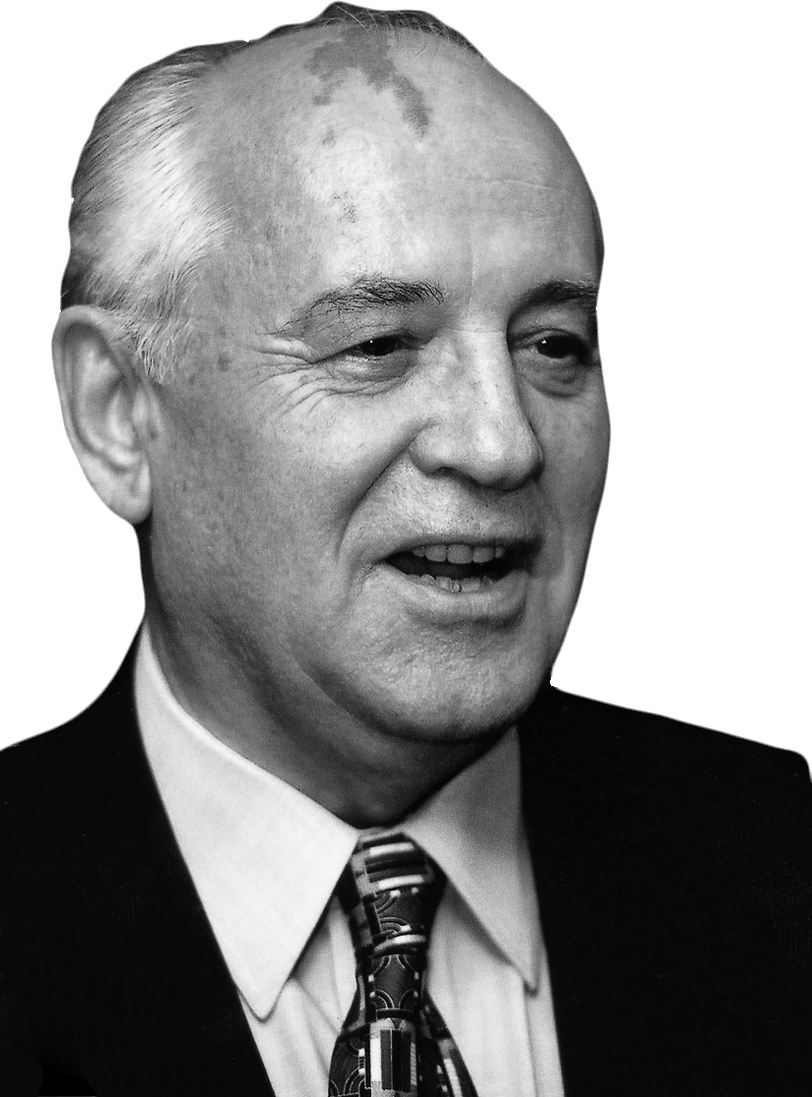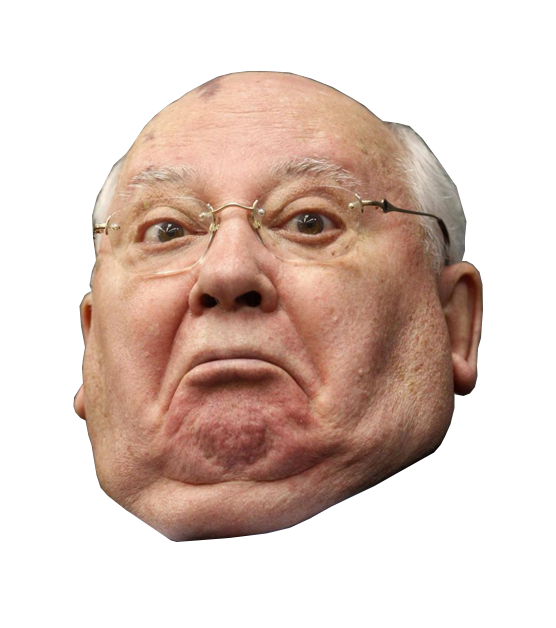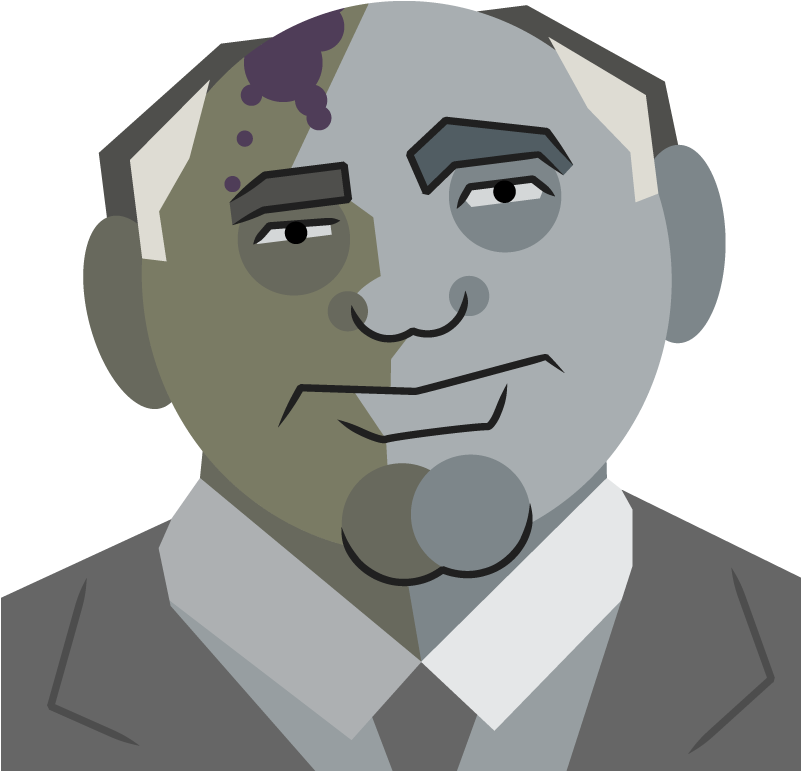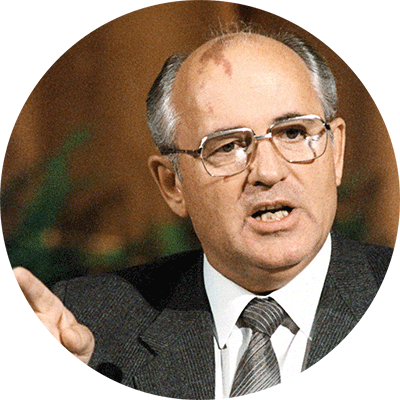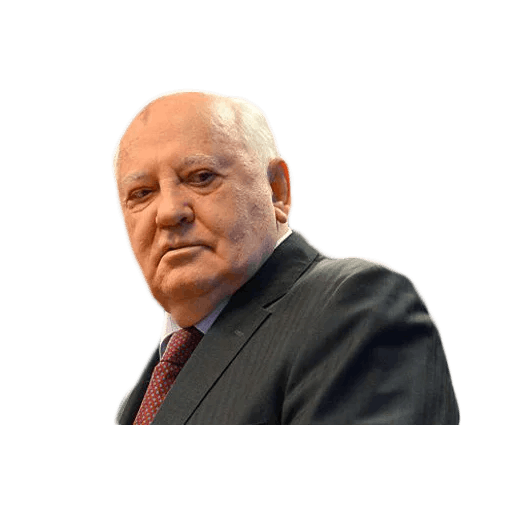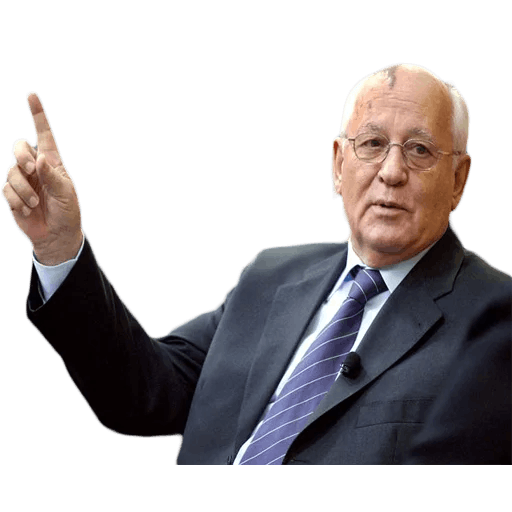Download top and best high-quality free Mikhail Gorbachev PNG Transparent Images backgrounds available in various sizes. To view the full PNG size resolution click on any of the below image thumbnail.
License Info: Creative Commons 4.0 BY-NC
Mikhail Sergeyevich Gorbachev (born March 2, 1931) is a former Soviet politician and Russian politician. He was the Communist Party of the Soviet Union’s General Secretary from 1985 to 1991, making him the Soviet Union’s eighth and last leader. From 1988 to 1991, he was also the country’s president, serving as chairman of the Supreme Soviet’s Presidium from 1988 to 1989, chairman of the Supreme Soviet from 1989 to 1990, and president of the Soviet Union from 1990 to 1991. Gorbachev began his political career as a Marxist–Leninist, but by the early 1990s, he had shifted to social democracy.
Gorbachev was born to an impoverished peasant family in Privolnoye, Stavropol Krai, of Russian and Ukrainian ancestry. Growing up under Joseph Stalin’s reign, he worked on a communal farm operating combine harvesters before joining the Communist Party, which controlled the Soviet Union as a one-party state based on Marxist–Leninist theory. He married Raisa Titarenko, a fellow student at Moscow State University, in 1953 before graduating with a law degree in 1955.
Following moving to Stavropol, he worked for the Komsomol youth movement and became a vocal supporter of Soviet leader Nikita Khrushchev’s de-Stalinization policies after Stalin’s death. In 1970, he was named First Party Secretary of the Stavropol Regional Committee, where he was in charge of overseeing the building of the Great Stavropol Canal.
In 1978, he returned to Moscow to become the party’s Central Committee Secretary, and in 1979, he was elected to the Politburo. Following the short administrations of Yuri Andropov and Konstantin Chernenko, the Politburo chose Gorbachev as General Secretary, the de facto head of government, in 1985, just three years after the death of Soviet leader Leonid Brezhnev.
Despite his commitment to the Soviet state and socialist principles, Gorbachev thought that considerable reform was required, particularly in the aftermath of the 1986 Chernobyl tragedy. He withdrew from the Soviet-Afghan War and met with US President Ronald Reagan in order to restrict nuclear weapons and bring the Cold War to a conclusion.
He withdrew from the Soviet-Afghan War and met with US President Ronald Reagan in order to restrict nuclear weapons and bring the Cold War to a conclusion. In the United States, his glasnost (“openness”) policy allowed for more freedom of expression and the press, while his perestroika (“restructuring”) program aimed to decentralize economic decision-making in order to increase efficiency. The one-party state was damaged by his democratic initiatives and the creation of the elected Congress of People’s Deputies.
When many Eastern Bloc nations abandoned Marxist–Leninist rule in 1989–90, Gorbachev refrained from intervening militarily. Internally, rising nationalist feelings posed a threat to the Soviet Union, prompting Marxist–Leninist hardliners to stage the failed August Coup against Gorbachev in 1991.
As a result, the Soviet Union was disbanded against Gorbachev’s desires, and he was forced to resign. After leaving the government, he established the Gorbachev Foundation, became a vociferous opponent of Russian Presidents Boris Yeltsin and Vladimir Putin, and fought for Russia’s social-democratic movement.
Gorbachev, widely regarded as one of the most influential personalities of the second half of the twentieth century, is still controversial. He was widely praised for his pivotal role in ending the Cold War, curtailing human rights abuses in the Soviet Union, and tolerating both the fall of Marxist–Leninist administrations in eastern and central Europe and Germany’s reunification.
He was widely praised for his pivotal role in ending the Cold War, curtailing human rights abuses in the Soviet Union, and tolerating both the fall of Marxist–Leninist administrations in eastern and central Europe and Germany’s reunification. In Russia, on the other hand, he is frequently chastised for failing to prevent the fall of the Soviet Union, which resulted in a reduction in Russia’s worldwide prominence and triggered an economic catastrophe.
Download Mikhail Gorbachev PNG images transparent gallery.
- Mikhail Gorbachev PNG
Resolution: 1452 × 958
Size: 558 KB
Image Format: .png
Download
- Mikhail Gorbachev Transparent
Resolution: 512 × 512
Size: 71 KB
Image Format: .png
Download
- Mikhail Gorbachev
Resolution: 1051 × 1372
Size: 543 KB
Image Format: .png
Download
- Mikhail Gorbachev PNG Clipart
Resolution: 512 × 512
Size: 80 KB
Image Format: .png
Download
- Mikhail Gorbachev PNG Cutout
Resolution: 512 × 512
Size: 76 KB
Image Format: .png
Download
- Mikhail Gorbachev PNG File
Resolution: 650 × 488
Size: 90 KB
Image Format: .png
Download
- Mikhail Gorbachev PNG HD Image
Resolution: 512 × 512
Size: 66 KB
Image Format: .png
Download
- Mikhail Gorbachev PNG Image
Resolution: 812 × 1097
Size: 428 KB
Image Format: .png
Download
- Mikhail Gorbachev PNG Images
Resolution: 556 × 628
Size: 293 KB
Image Format: .png
Download
- Mikhail Gorbachev PNG Photo
Resolution: 801 × 771
Size: 36 KB
Image Format: .png
Download
- Mikhail Gorbachev PNG Photos
Resolution: 400 × 400
Size: 88 KB
Image Format: .png
Download
- Mikhail Gorbachev PNG Pic
Resolution: 512 × 512
Size: 45 KB
Image Format: .png
Download
- Mikhail Gorbachev PNG Picture
Resolution: 512 × 512
Size: 58 KB
Image Format: .png
Download

